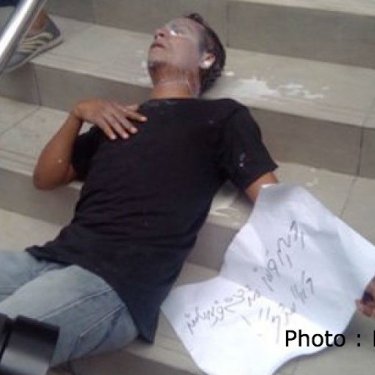RSF condemns arrest of 16 journalists protesting threats to media freedom

Reporters Without Borders (RSF) calls on the Maldivian authorities to drop all charges against the 16 journalists who were arrested yesterday while staging a peaceful sit-in outside the president’s office in Malé in protest against the decline in respect for media freedom.
The detained journalists were eventually released but were due to appear in court today on charges of resisting or obstructing the authorities.
The journalists’ grievances include a court decision to close the newspaper Haveeru, a bill recently submitted to parliament that would criminalize defamation (which was decriminalized in 2009), restrictions on media coverage of criminal court proceedings, and the government’s failure to combat impunity for violence against journalists – in particular, the lack of any significant progress in the investigation into the 2014 disappearance of Ahmed Rilwan, a journalist with Minivan News (now called The Maldives Independent).
“The series of draconian measures and the repressive actions directly targeting journalists clearly show that this is not a democratic government that accepts the media’s watchdog role,” said Benjamin Ismaïl, the head of RSF’s Asia-Pacific desk. “We call on President Abdulla Yameen Abdul Gayoom to put an immediate end to the authoritarian offensive on which he has embarked.”
Despite the violence, the demonstrations continued today outside parliament and outside the court that heard the charges against some of the journalists arrested yesterday.
Last November, RSF warned the authorities against any attempts to gag broadcast and online media and condemned a series of attacks on journalists, TV channels and news websites. After a state of emergency was declared on 4 November, the Maldives Broadcasting Commission threatened to withdraw the licences of radio and TV stations that broadcast content “infringing on national security.”
An Indian Ocean archipelago where opposition and independent media are exposed to a great deal of violence, Maldives is ranked 112th out of 180 countries in RSF’s 2015 World Press Freedom Index, after falling 60 places since 2010.
The family and colleagues of Ahmed Rilwan have been without any news of him since his disappearance on 8 August 2014.



